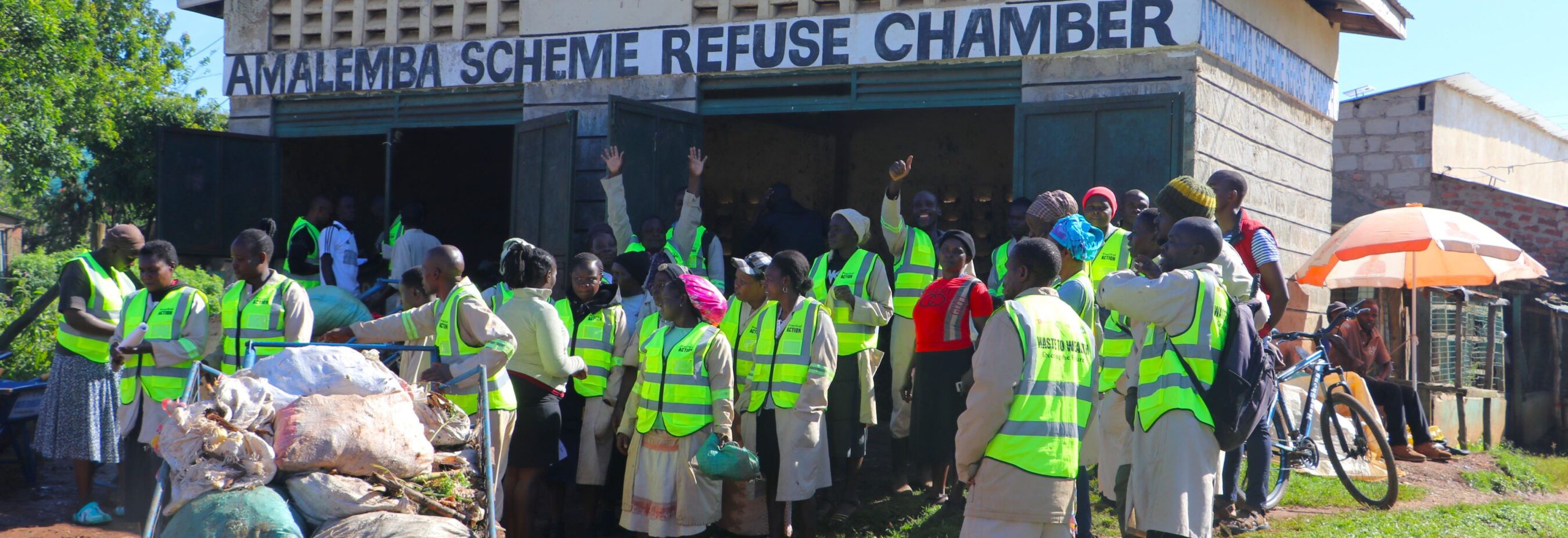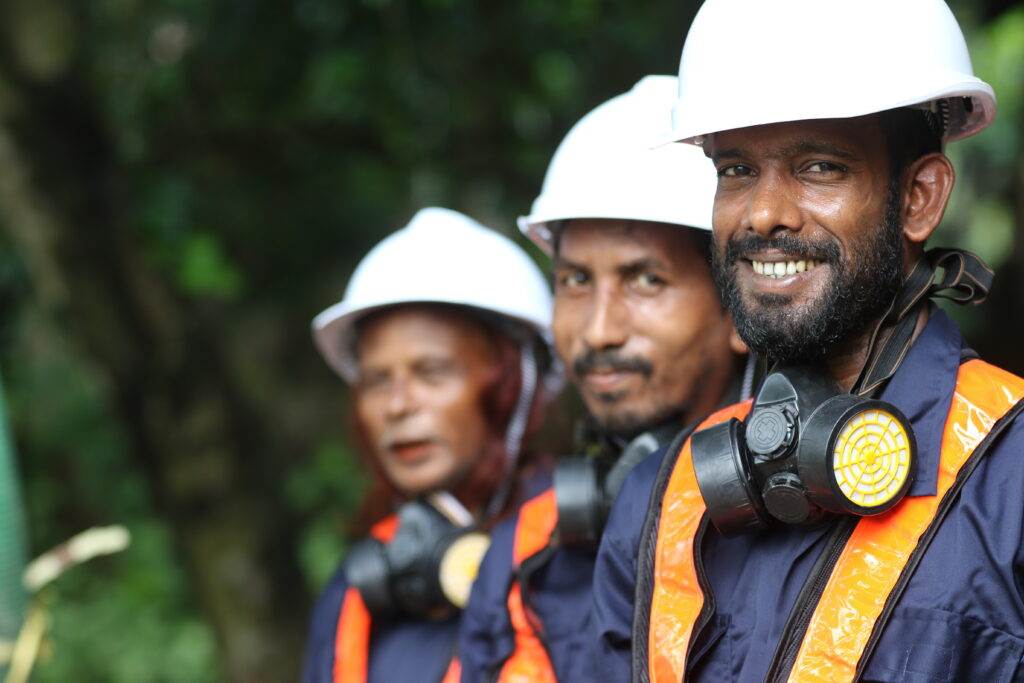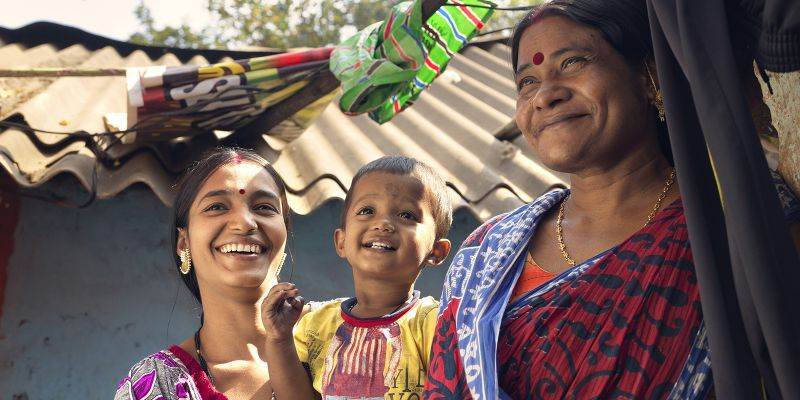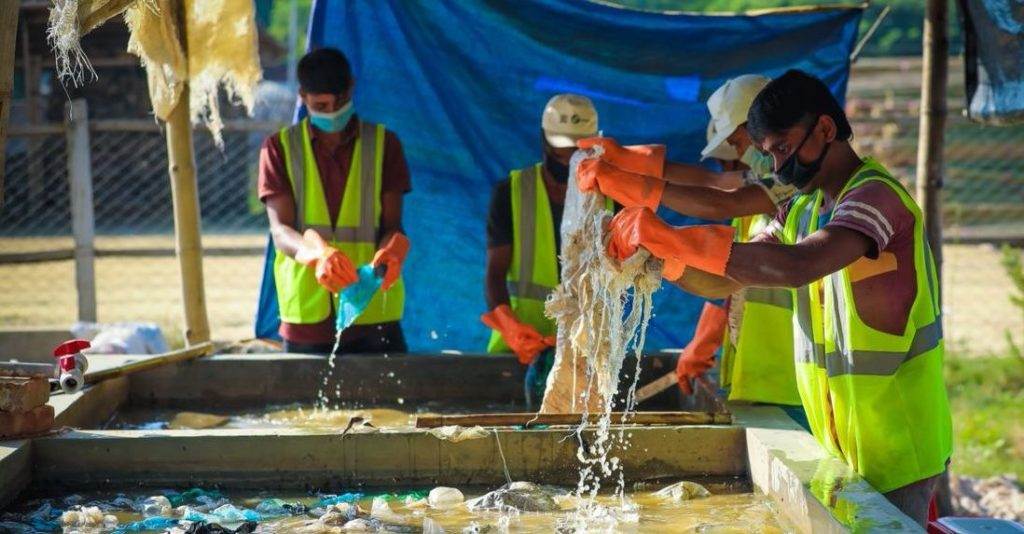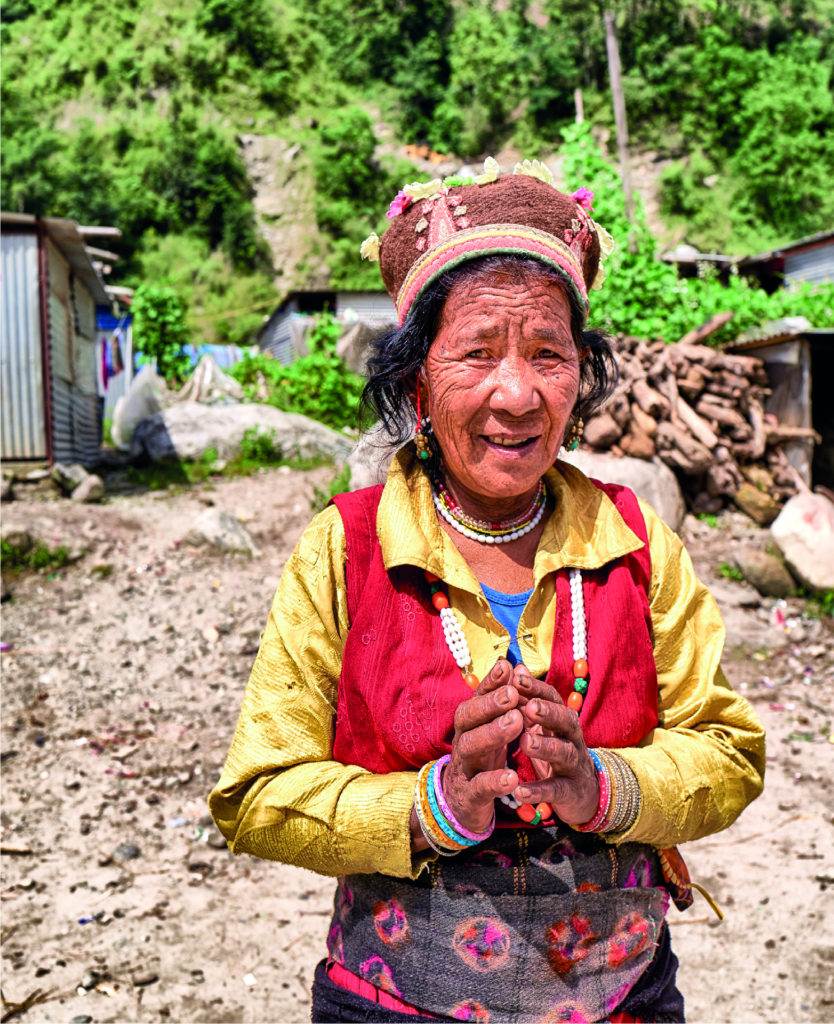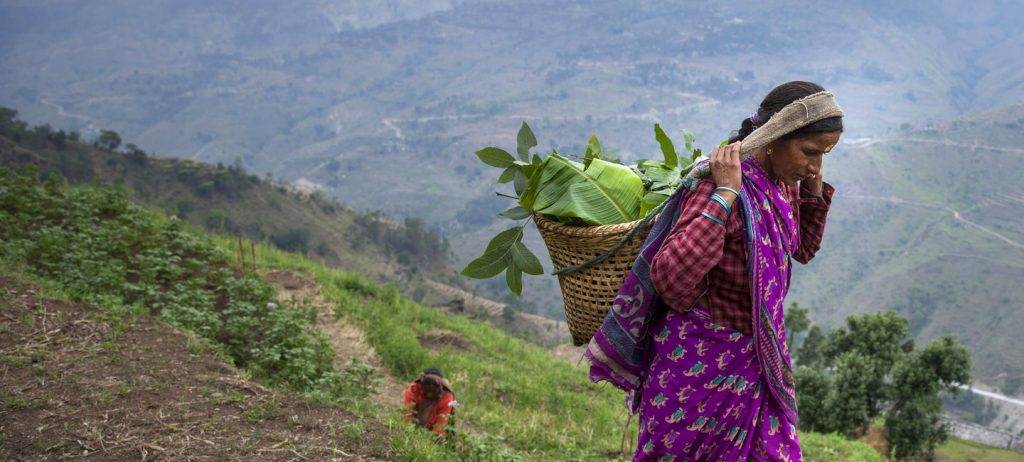The population of urban slums and low-income settlements continues to grow, with the needs of the poorest and most vulnerable often overlooked. Lives are at risk from a lack of clean water services and inadequate and unsafe sewage and refuse management.
That’s why we’re committed to making cities in developing countries cleaner, healthier, fairer places for people to live and work.
This includes providing clean drinking water and properly managing waste and sewage. We are working with communities, municipalities and utility companies to deliver sustainable Water, Sanitation, Hygiene (WASH) and waste management services.
Together we’re improving hygiene practices and protecting the health, safety and dignity of poorly paid waste workers.



